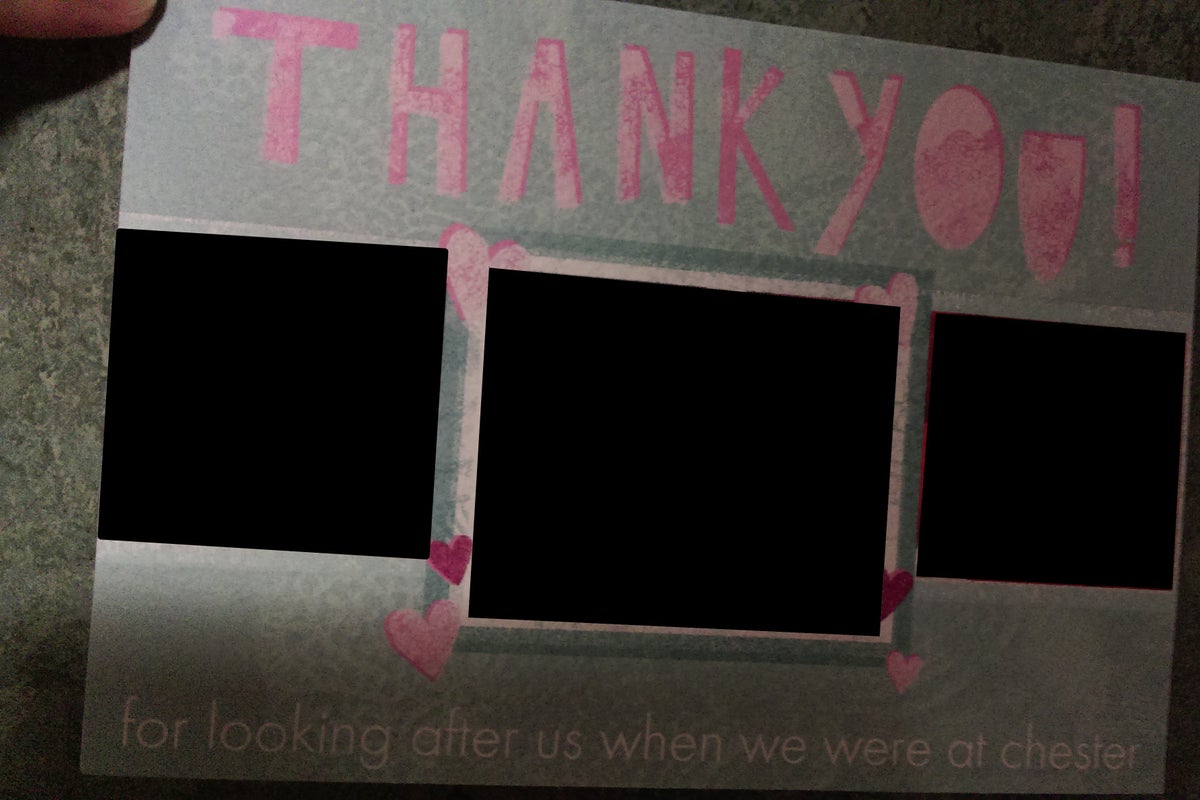
Like the parents of hundreds of babies that Lucy Letby cared for, one mother of newborn twins “completely” trusted the nurse.
Letby, 33, murdered the woman’s son, Child E, with a fatal injection of air into his bloodstream and the following day attempted to kill his twin brother, Child F, by insulin poisoning.
The boys’ mother was under the impression that both incidents were natural occurrences, with no post-mortem examination carried out on Child E.
Three months later she and her husband even took in a hamper and a “Thank you” card for staff on the neonatal unit at the Countess of Chester Hospital.
Before his death Letby was also said to have earlier attacked Child E on the same night shift, causing bleeding.
Giving evidence in the trial at Manchester Crown Court, the woman said she heard cries as she walked along the main corridor to the intensive care nursery.
“It was a sound that should not come from a tiny baby,” she said. “I can’t explain what the sound was. It was horrendous. More of a scream than a cry.”
She said she tried in vain to comfort her son and then noticed blood around his bottom lip and the top of his chin.
Letby told her a feeding tube had irritated the back of his throat and caused bleeding, she said.
The mother said Letby then told her to go back to the post-natal ward.
Prosecutor Nick Johnson KC asked her: “Did you do what you were told?”
Child E’s mother replied: “Yes, because she was an authority and she knew better than me and I trusted her. Completely.
“She said the registrar was on the way and if it was a problem someone would ring up to the post-natal ward.
“The rules were go back upstairs and if there was a problem I would call you, and that was Lucy Letby on the neo-natal unit. I followed those rules.”
I knew. I knew there was something wrong and I had known from leaving him but I left— Child E's mother
The witness later cried as she told jurors: “I knew. I knew there was something wrong and I had known from leaving him but I left.”
Following Child E’s death she was asked if she wanted to bathe the baby as part of the standard bereavement service offered to parents.
She said: “At that time I didn’t feel like I was able to. I was just broken and I couldn’t so Lucy Letby bathed him in front of me.”
She broke down in tears as she added: “After he was bathed he was placed in a white gown. I just remember being thankful because we had no clothes for him because he was so little.”
Letby later presented her with a photograph of Child F holding his twin brother’s teddy, she said.
“She said ‘I got this picture. He rolled over and hugged his bear. I thought it was so amazing I took a picture for you’,” she told the court.
Another mother of one of Letby’s victims, a baby girl also murdered by administration of air, also recalled the nurse’s involvement in bathing.
She said Letby was present when she was first allowed to bathe her daughter, Child I, when she was in the unit.
She said: “I was so pleased to be able to bathe her. (Child I) was obviously enjoying it because she was smiling.
“Lucy helped prepare the bath … she even offered to take some photos using my mobile, which I agreed to.”
Letby took a bath in to the parents’ room after Child I died, she said.
“She said if she could come in and take some photos, which we could keep…
“She was smiling and kept going on about how she was present at the first bath and how (Child I) had loved it. I wished she would just stop talking.
“Eventually she realised and stopped. It was not something we wanted to hear.”
Letby later sent a condolence card to Child I’s parents, which she photographed on her phone.
Another mother said she did not want her baby daughter “out of my sight” after the death of the infant’s twin brother, Child A, the night before.
She said she and her partner were eventually persuaded by nursing staff to get some rest, the court heard.
She said: “We returned to the ward and attempted to watch a film, and the next thing I know we were getting woke up by a nurse.
“’You need to come now’. My heart sank. Not my baby. Not again.”
They dashed into the neo-natal unit where a nurse told them their daughter, Child B, had stabilised following a “very similar situation” to Child A with a rapid fall in heart rate and oxygen levels.
The twins’ mother said she was “frantic and terrified” and stayed with Child B throughout the night. The baby was “restless … as if she was trying to tell me something was wrong.”
Following her own discharge from the Countess of Chester, she said she would arrive daily at 9am to see Child B, the court heard.
She and her partner would then set alarms on their phones at two-hour intervals overnight so they could call the hospital for updates on Child B.
“I was, and still am, extremely protective of her,” she said.







